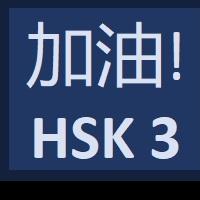HSK3 17-04
HSK3 17-04
HSK3 17-04
HSK3 17-04
HSK3 17-04
HSK3 17-04
HSK3 17-04
HSK3 17-04
HSK3 17-04
HSK3 17-04
HSK3 17-04
“ 运动 很 重要 ” 这 句话 谁 都 懂 。
Everyone understands the phrase "exercise is important".
Tout le monde connaît le dicton "L'exercice est important".
Mindenki ismeri a mondást, miszerint "a testmozgás fontos".
"Tập thể dục là quan trọng" mọi người đều biết câu này.
但是 你 知道 怎么 运动 吗 ?
But do you know how to exercise?
Mais savez-vous comment faire du sport ?
Nhưng bạn có biết tập thể dục không?
第一 , 要 选择 ” 对 “ 的 时间 , 一般来说 , 早上 九点 是 最好 的 时间 , 冬天 要 再 晚 一些 。
First, choose the "right" time. Generally speaking, it is best to stay longer in the morning and later in winter.
Tout d'abord, choisissez le "bon" moment. En règle générale, neuf heures du matin est le meilleur moment, et ce sera plus tard en hiver.
Először is meg kell választanunk a "megfelelő" időpontot. Általánosságban elmondható, hogy a reggel kilenc óra a legjobb időpont, télen pedig egy kicsit később.
Đầu tiên, bạn cần chọn thời điểm “thích hợp”, nói chung, chín giờ sáng là thời điểm tốt nhất và muộn hơn vào mùa đông.
第二 , 要 选择 ” 对 “ 的 地点 , 公园 , 山上 , 游泳 馆 , 这些 地方 都 可以 运动 。
Second, there is a choice of "right" locations, parks, mountains, swimming pools, these places can exercise.
Másodszor, ki kell választanunk a "megfelelő" helyet, például parkokat, hegyeket, uszodákat, és mindezek a helyek alkalmasak a testmozgásra.
Thứ hai, bạn phải chọn đúng địa điểm, chẳng hạn như công viên, núi non, hồ bơi, nơi bạn có thể tập thể dục.
第三 , 必须 要 根据 自己 的 健康 情况 运动 , 如果 你 很久没 爬山 或者 游泳 了 , 运动 一会儿 就 一定 要 休息 休息 。
Drittens müssen wir entsprechend unserem eigenen Gesundheitszustand trainieren. Wenn Sie lange Zeit nicht auf Berge gestiegen oder geschwommen sind, müssen Sie sich nach dem Training eine Weile ausruhen.
Third, you must exercise according to your own health. If you have not climbed a mountain or swimming for a long time, you must rest after a while.
Troisièmement, vous devez faire de l'exercice en fonction de votre propre santé.Si vous n'avez pas escaladé une montagne ou nagé depuis longtemps, vous devez vous reposer après avoir fait de l'exercice pendant un certain temps.
Harmadszor, a saját egészségi állapotunknak megfelelően kell edzenünk. Ha hosszú ideig nem másztunk hegyet vagy úsztunk, akkor egy ideig pihennünk kell az edzés után.
Em terceiro lugar, devemos exercitar-nos de acordo com o nosso estado de saúde: se não tivermos escalado montanhas ou nadado durante muito tempo, devemos descansar depois de nos exercitarmos durante algum tempo.
Thứ ba, phải rèn luyện sức khỏe phù hợp với sức khỏe của bản thân, nếu lâu ngày không leo núi, bơi lội thì sau khi tập luyện một thời gian phải nghỉ ngơi.
还要 记得 刚 运动 完 口渴 的 时候 , 不要 马上 喝水 。
Also remember not to drink water immediately when you are thirsty after exercising.
N'oubliez pas non plus que lorsque vous avez soif juste après l'exercice, ne buvez pas d'eau immédiatement.
Ne feledje, hogy ne igyon vizet, ha edzés után szomjas.
Ngoài ra, hãy nhớ không uống nước ngay khi khát sau khi tập thể dục.
选择 , 冬天 , 必须 , 根据 , 情况 , 口 , 渴
Entscheidungen , Winter , Muss , Je nach , Situation , Mund , Durst
choose, winter, must, according to circumstances, mouth, thirst
Választások , tél , kell , attól függően , helyzet , száj , szomjúság , szomjúság

